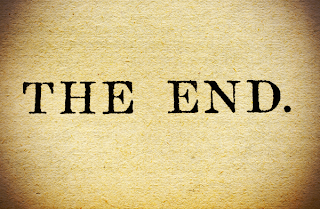So I'm back. Hopefully. For now at least. I will go into detail about just what has transpired in my sad absence at
My Unicorn Has Wings. For now, I have a fantabulous guest post for you all written by Cait!
If you’re a writer, you’ve probably heard of the adage “don’t be passive in your writing”. Funky. Specific. And easy! Right?
Right?
Well, what exactly does it mean? Does it apply to every-single-sentence-in-your-book? How do you identify a “passive” passage? What is the exact difference between passive and action sentences anyway?!
Keep calm. Breathe. Let’s think about this slowly and logically, okay?
How to identify a PASSIVE sentence
“Mr and Mrs Dursley, of number four, Privet Drive, were proud to say that they were perfectly normal, thank you very much.” – (Harry Potter and the Philosopher’s Stone by JK Rowling)
“There was a town, and there was a girl, and there was a theft.” – (Who Could That Be At This Hour? by Lemony Snicket)
Let’s take a closer look at these two examples, okay? They both have a certain thing in common. Hands, hands? A show of hands? Yes! The verbs are passive. Instead of action verbs like “shoved” or “ran”, they use passive verbs like “was” and “were”. I highlighted these in yellow (because I’m nice like that).
How to identify an ACTION sentence
“My mother drove me to the airport with the windows rolled down. – (Twilight by Stephanie Meyer)
“Rain fell that night, a fine, whispering rain.” – (Inkheart by Cornelia Funke)
This is easy now, isn’t it? Instead of passively telling us what’s happening, they use an action(“drove” and “fell”). Cornelia Funke could have said “Rain was falling…” and Stephanie Meyer could have said, “My mother was driving me…” But they chose to use action.
Okay, so we should always use ACTION in our writing and never be PASSIVE?
Gosh, no! For one, it’s impossible. And for two, there’s no need. Passive isn’t wrong, it just isn’t as strong as action. Basically, if you can show, you should.
In her book, What’s Left of Me, Kat Zhang could have started the first sentence like this: “Everyone was blasted from their seats by the end-of-school bell.” Instead, she decided to make the sentence into an action. The novel begins: “The end-of-school-bell blasted everyone from their seats.”
But you can’t always show.
Think of this sentence: “I was sad.” If you want the sentence to look and feel roughly the same, you can’t take out the passive. That’s not bad or wrong, either.
Learning to write sentences that use action verbs instead of passive ones takes practice. A little work and you can do it! ACTION can make your writing pack a punch, because it becomes tighter, smoother and connects the reader to the story by putting them in the middle of everything and not relating that it “just happened”. It’s a priceless piece of advice. I like it a lot.
“And by the way, everything in life is writable about if you have the outgoing guts to do it, and the imagination to improvise. The worst enemy to creativity is self-doubt.” (Sylvia Plath)
Between writing, eating peanut butter, and rereading The Hunger Games, Cait blogs at Notebook Sisters. She writes fantasy, a little on the darker side, and has finished 6 novels. Her favourite hobby is rewriting said six novels. She’s 19 years old, a homeschool graduate, and believes in Never Land.
This week, the Once Upon a Time... linkup prompt will be:
threats. Have fun!
P.S. I will also be doing the giveaway info which I missed while I was gone. Good luck to those of you who entered!























